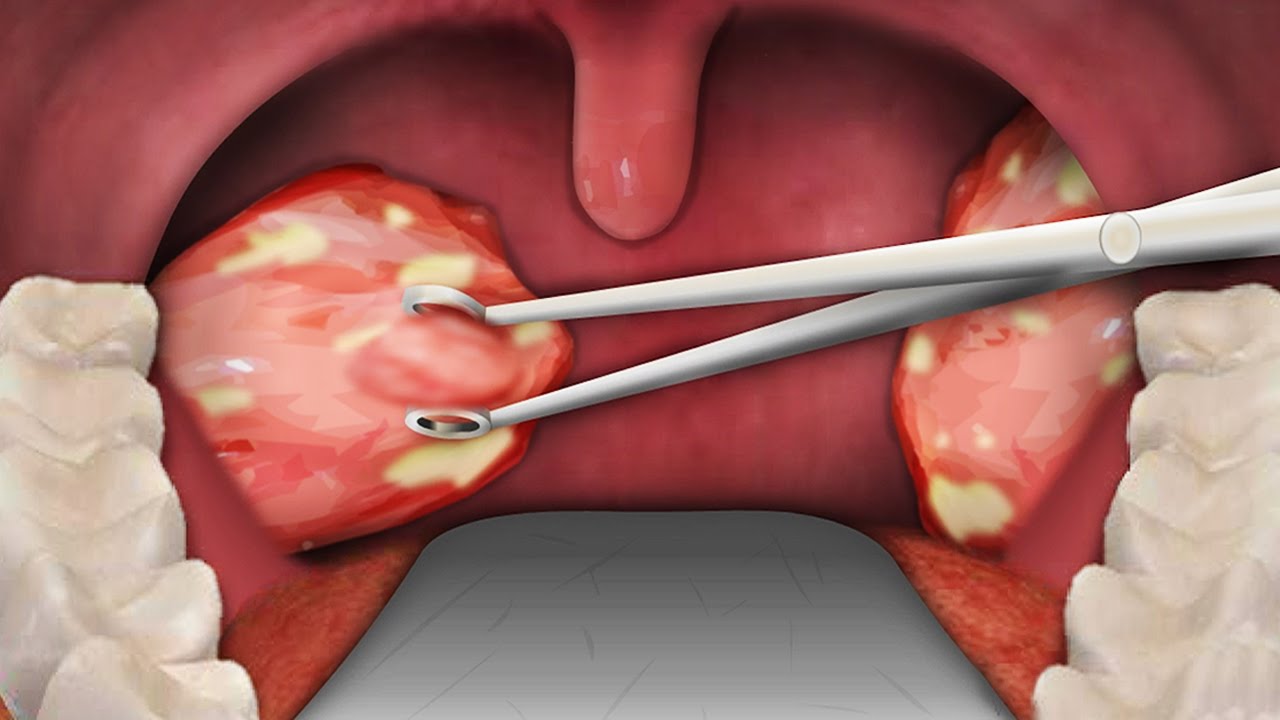
Types of Tonsils (throat)
Palatine Tonsils: These are the most well-known and easily visible tonsils. Palatine tonsils are located on either side of the back of the throat, near the base of the tongue. They are the tonsils that are often referred to when people talk about tonsillitis or issues related to the tonsils.
Pharyngeal Tonsils (Adenoids): The pharyngeal tonsils, also known as adenoids, are located in the upper part of the throat, behind the nasal cavity and above the soft palate. They are not visible like palatine tonsils and are primarily involved in the immune system’s response to infections that enter the body through the nose and throat.
Lingual Tonsils: Lingual tonsils are situated at the back of the tongue near the throat’s base. They are less well-known and less frequently discussed than palatine tonsils and adenoids. Lingual tonsils, like other tonsil types, play a role in the immune system’s defense against infections in the throat and mouth.
Recognizing the Symptoms Tonsils:
Tonsil-related symptoms can vary depending on the specific condition affecting the tonsils. Some common symptoms associated with tonsil problems include:
Sore Throat: One of the most common symptoms is a persistent and painful sore throat. This can make swallowing difficult and uncomfortable.
Swollen Tonsils: Enlarged or swollen tonsils are a hallmark sign of tonsil-related issues. The tonsils may appear red, inflamed, and larger than usual.
Difficulty Swallowing: Swollen tonsils can make it challenging to swallow food and even saliva. This can lead to discomfort and sometimes pain.
White or Yellow Spots: Tonsillitis, which is an infection of the tonsils, can cause the tonsils to develop white or yellow spots or pus-filled pockets on their surface.
Fever: Tonsillitis and other tonsil infections can often be accompanied by a fever, which is a sign that the body is fighting an infection.
Bad Breath: Persistent bad breath, also known as halitosis, can occur when tonsils are infected or have trapped food particles and bacteria.
Swollen Lymph Nodes: Swollen lymph nodes in the neck, just below the jawline, can be a sign of tonsil-related infections.
Ear Pain: Some people may experience referred pain in the ears due to the close proximity of the tonsils to the ears.
Voice Changes: Enlarged tonsils can sometimes affect the voice, causing hoarseness or changes in vocal quality.
Chronic or Recurrent Tonsillitis: If someone frequently experiences sore throats, swollen tonsils, and other symptoms due to tonsillitis, it may be considered chronic or recurrent, requiring further evaluation.
The Tonsils Surgery Process:
The treatment process for tonsil-related conditions depends on the specific issue and its severity. Here is an overview of the treatment process for tonsil-related problems:
1. Evaluation and Diagnosis:
- When a patient presents with symptoms such as sore throat, difficulty swallowing, fever, or enlarged tonsils, a medical professional will perform a physical examination.
- The doctor may use a throat swab to test for bacterial or viral infections like streptococcal pharyngitis (strep throat).
2. Conservative Management:
- In many cases, mild tonsillitis or throat infections can be managed with conservative measures.
- Treatment may include rest, hydration, over-the-counter pain relievers, and antibiotics if a bacterial infection is present.
3. Tonsillectomy Consideration:
- If a patient experiences recurrent tonsillitis or severe tonsil-related issues, the doctor may consider a tonsillectomy, which is the surgical removal of the tonsils.
- Tonsillectomy is often recommended when tonsil-related problems significantly impact a patient’s quality of life or when complications arise.
4. Tonsillectomy Procedure:
- Tonsillectomy is typically performed under general anesthesia in a hospital or surgical center.
- During the procedure, the surgeon removes the tonsils using various techniques, such as cold steel dissection, electrocautery, or laser ablation.
5. Postoperative Care:
- After a tonsillectomy, patients are closely monitored in a recovery area.
- Pain management and hydration are essential during the recovery period.
- Patients are advised to consume soft, cold foods and avoid spicy or rough-textured foods during the healing process.
7. Recovery Period:
- The recovery period after a tonsillectomy varies but often lasts about 1 to 2 weeks.
- It’s important for patients to rest and avoid strenuous activities during this time.
- Full recovery may take a few weeks, and complete healing of the throat can take several weeks to a couple of months.
8. Complications and Concerns:
- While tonsillectomies are generally safe, there can be risks and potential complications. Patients should be aware of these risks and follow postoperative instructions carefully.
